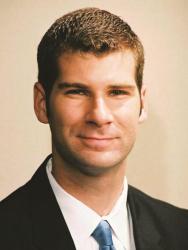On January 5, 2005 the Brookings Project on U.S. Relations with the Islamic World, housed under the auspices of the Saban Center for Middle East Policy, hosted a conference on Science and Technology in U.S. Relations with the Islamic World. The meeting was attended by a wide range of participants (both scientists and policymakers) from across the U.S. Government, including the Office of Science and Technology Policy in the Executive Office of the President, numerous cabinet departments (the Departments of State, Energy, Defense, Commerce, and Health and Human Services), and agencies such as the U.S. Agency for International Development and the National Science Foundation. There were also representatives from academia and private sector institutions, both corporate and non-governmental, in attendance.
Science and technology have played an important role in many parts of the world as engines of economic growth, and infrastructural and social development, as avenues for education and intellectual development, and as forums for inter-regional and transnational cooperation. The aim of this workshop was, therefore, to discuss the current state of science and technology in the countries of the Islamic world, assessing both their strengths and needs, and to review current U.S. engagement with these fields of activity. Looking forward, the workshop then considered how the U.S. could best undertake initiatives and enter into partnerships to assist in the development of science and technology in the Islamic world, and what its priorities and realistic goals should be.
Participants in the workshop received a copy of a white paper Untapped Potential: U.S. Science and Technology Cooperation with the Islamic World, written by Brookings scholars Michael Levi and Michael d’Arcy, which acted as a framework for the subsequent discussions. The diverse assembly of participants ensured a substantive, wide-ranging and highly informed consideration of the relevant issues. The workshop heard about the varied, and non-uniform, ways in which countries of the Islamic world lag the developed world in science and technology at all levels, from primary education to industry and academic research. It was also noted, however, that in various parts of the Islamic world models for possible progress already exist, including ongoing scientific cooperation with the U.S., industrial development, private sector partnerships with academia, and international scientific networks; lessons can also be learnt from present difficulties. Several speakers enunciated why it is in the interests of the U.S. to foster science and technology development in the Islamic world, and others described the current activities of the U.S. government in this regard. The range of government activities was found to be rather broad but lacking in coherence and an overall strategy tied to U.S. foreign policy priorities. Difficulties resulting from U.S. policy, such as a lack of funding for collaborative efforts and the difficulty for foreign nationals of obtaining visas that facilitate cooperation, were also highlighted.
A consensus on several recommendations emerged from the workshop. The U.S. should set clear goals for its scientific and technological cooperation with the Islamic world, and develop an over-arching strategy to achieve them. This should be explained to the American public, and optimal use of U.S. public diplomacy in the Islamic world should be made. Industrial and entrepreneurial development must be a priority, but properly funded U.S. engagement should take place at all levels, from primary education to academia, and availing of human resources such as diaspora communities. ICT infrastructure and knowledge accessibility must be improved, and, with suitable attention to national security, hosting of academic visitors and transfer of technology should be facilitated. U.S. – Islamic world collaboration must be a genuine partnership, in which the U.S. listens to its partners and programs are tailored to their priorities. The pursuant possibilities are indeed considerable.

